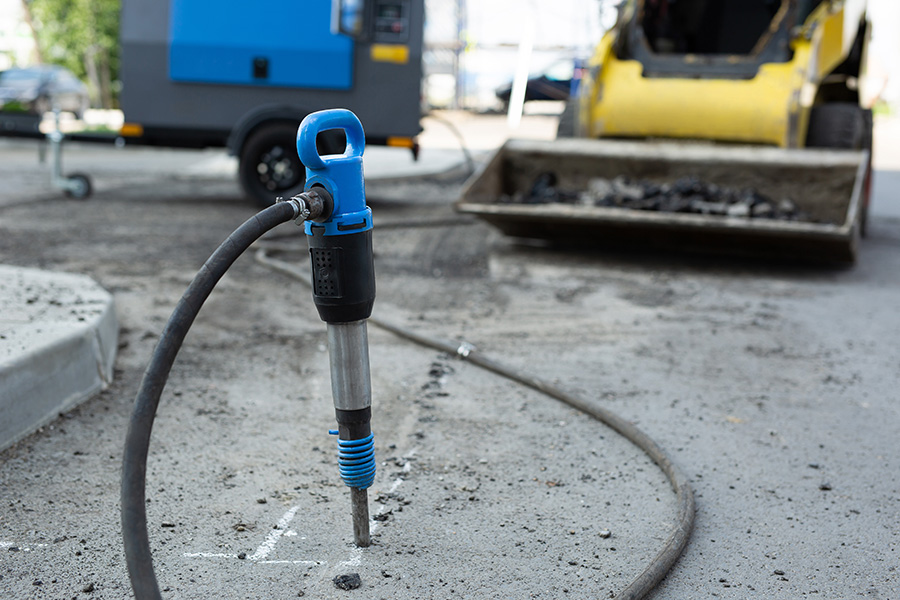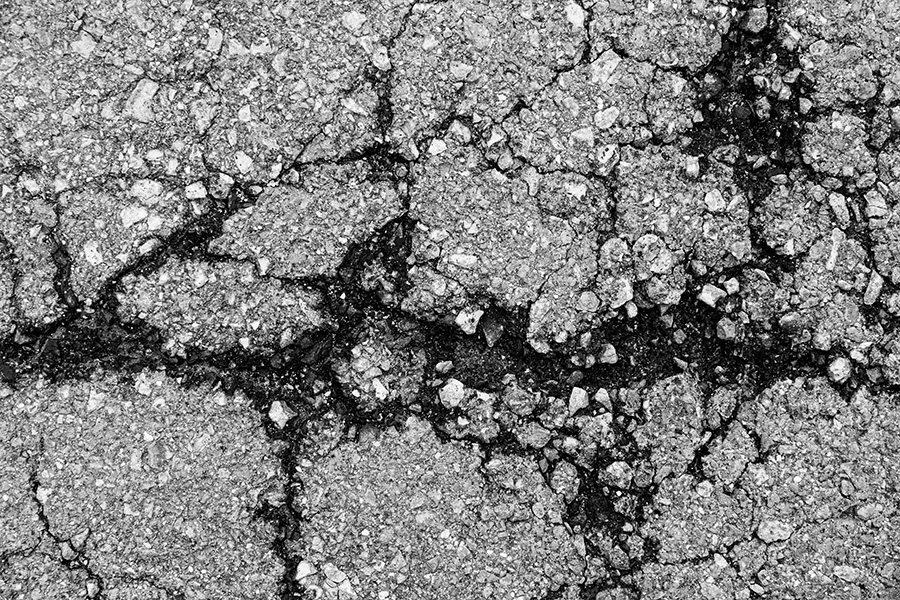An essential piece of a pavement preservation plan includes crack sealing. As a home or business owner, understanding what crack sealing is and how it can benefit your asphalt is important. Small cracks can turn into larger cracks, potholes, or even require complete asphalt replacement when left untouched.
Yes, crack sealing is necessary.
To help you further understand crack sealing, we are going to dive a little deeper into the topic today. Keep reading to learn what crack sealing is, why it is necessary, and when to do it.
What Is Crack Sealing?
When cracks are left untreated, they can easily allow moisture into the pavement and develop into much larger issues. Crack sealing is a cost-effective way to prevent significant damage to the asphalt.
An adhesive sealant is placed into the cracks to prevent moisture intrusion and can slow the deterioration of the asphalt. This can help almost double the lifespan of the pavement while adding to the curb appeal of the home or business.
Why Is Crack Filling Necessary?
As we just discussed, crack filling is essential to help preserve the asphalt and hinder moisture intrusion. The key to a successful crack filling is to fill the cracks while they are small to slow the crack growth and prevent new cracks from forming. So, if you notice small cracks forming within your parking lot or driveway, you will want to have them filled quickly.
Left unfilled, cracks will allow rain and other moisture to flow through the pavement and erode the base materials. This will result in extensive damage to the asphalt. Prevent significant damage and save your maintenance budget by filling the cracks with crack filler.

When To Have Cracks Filled?
It is recommended to have asphalt sealcoated every three to five years. As a part of the sealcoating process, most contractors will also recommend crack filling within the same timeframe. Sealcoating helps with small cracks, but it is not enough for larger cracks. This is why crack filling is essential and typically completed while sealcoating.
Types of Cracks
There are several types of cracks that can form on an asphalt surface. Each type of crack has its own characteristics that need to be identified for it to be properly repaired. As a business owner or property manager, understanding the various types of cracks in your asphalt can help you when it comes time for repairs and crack filling.
- Transverse
- Longitudinal
- Block
- Edge
- Reflective
- Fatique
- Seam
- Slippage
While crack filling can help with cracking, it is not always the best solution for the type of crack you might be dealing with. Sometimes additional repair is required, which could include patch removal and replacement. Be sure to have a professional asphalt contractor examine your asphalt and provide the best solution.
If you are located in the greater Mooresville area and in need of crack filling or repair, contact Toste Construction today. Our team is experienced with parking lots of all sizes and can handle any repair necessary. Call our office to schedule your FREE estimate and trust your asphalt to be in good hands with our team.
Toste Construction specializes in sealcoating and crack filling to ensure you and your customers have a smooth surface to drive on. We are your Mooresville asphalt and pavement maintenance company. Our services include asphalt sealcoating, striping, patching, pothole repair and crack filling for both residential and commercial projects throughout western North Carolina.

